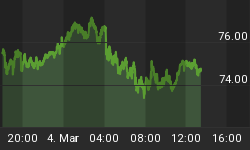Oh the people's flag is deepest red, just like the government's budget...
As May day protests go, the US central bank's looked pretty tame on Wednesday.
Athens' strikers burnt a giant picture of Angela Merkel dressed as Hitler. Students in Washington threw bags of urine at each other. Protesters in Madrid waved flags shouting that "Austerity ruins & kills", while Turkish police broke up an illegal demo with tear gas and water cannon.
But in the Eccles Building? "Fiscal policy is restraining economic growth," said the Federal Reserve in its own policy statement on Wednesday.
Sure, it doesn't sound much like a chorus of the Red Flag. But for the crowd of central bankers, advisors and economic PhDs gathered for the Fed's latest policy decision, it was verging on a riot.
Central-bank comrades are famously "independent" from politics. Or they're supposed to be. But these career bureaucrats - people who tend to believe in a free market in all things but the price of money - have long been calling for more stimulus spending. Even in their quiet, stilted manner, they began chanting for politicians to reverse course on austerity more than 12 months ago in fact.
Now the Fed is taking to the barricades just as the global media rains petrol bombs onto the case for cutting government debt, fueled by the Reinhart-Rogoff debacle. Even the IMF, scourge of debtor nations from WWII to the Asian Crisis, now wants the UK to spend more and tax less. Which George Osborne is doing anyway. Just not on purpose.
Financial assets so far seem little fussed by Wednesday's Fed protest. The S&P has hit a new all-time high, Treasury bonds are priced so highly they pay nothing after inflation, and gold remains 10% below the bottom of the previous 18 months' trading range. But whether Ben Bernanke and the rest were aiming their molotov cocktails at the sequester (aka "Harmful automatic budget cuts" in the words of the White House) or at the lack of wilful deficit spending which plenty of Ben Bernanke's academic peers keep calling for, doesn't matter just yet. Because in the US, as in the UK and Europe, politicians remain a long way from wanting to spend! Spend! SPEND! in front of their electorates (and lenders) just yet.
So the angry chanting mob at the Fed, like the rest of the developed world's central banks, feels it must instead stay committed to remaining "exceptionally accommodative" in its own policy - meaning the price of borrowing and the return on lending money - at least until the long-missing recovery turns up. Yet even as the US central bank keeps printing $40 billion a month to buy mortgages, and $45 billion a month to buy government bonds, it now wants the US government to start piling on fresh debt obligations too.
Deficit spending plus money printing by the central bank? Lots of people fear that spells inflation. Most of them read history, and some of them work in central banks or government. But louder voices now say inflation would be a blessing, pointing to Japan's long, soft depression.
Last month's dash by private households for bargain-priced gold and silver looks increasingly like sound insurance planning.















